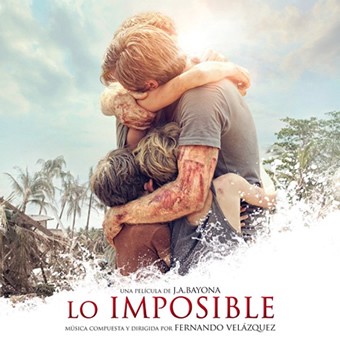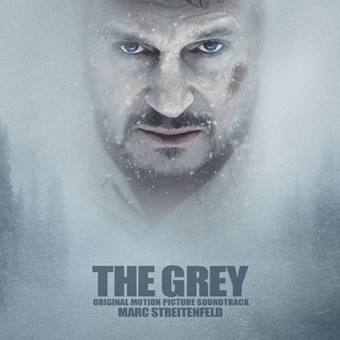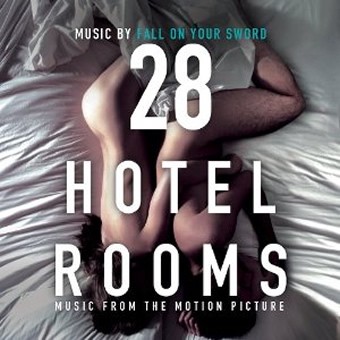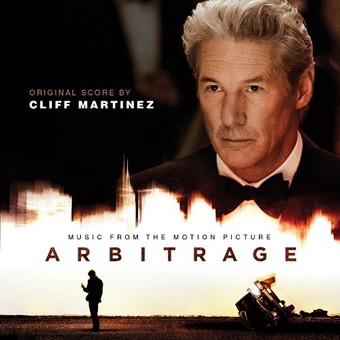Looking back over the past year in film, it is impressive to remember the different styles and forms of music that accompanied these various releases as they bring back the memories and emotions felt when first hearing a particular song or watching a piece of orchestration pair perfectly with what was happening on screen. When it comes to music, it is not simply a question of what was the best; it is a question of what resonated the most.
Music created for film is unlike any other type of music because it is intended to be listened to while watching specific images. Of course there are songs that stand well on their own (see: Adele’s “Skyfall”), but hopefully even outside of the film, those songs conjure up memories of the films they came from. Sometimes a song placed in a particular scene can take on a whole new meaning, giving you a new ideas to reflect on when you hear it (see: “The Air That I Breathe” by the Hollies as used in a pivotal scene in Seeking a Friend for the End of the World.)
Soundtracks and scores help add to the emotion of a film and this year’s musicians delivered in spades. From turning found sounds into orchestration to adding a new layer of depth to the end of a trilogy to proving that sometimes words simply are not enough, 2012 was filled with new, inventive, and memorable music.
Let’s look back and listen to the twelve selections that had me hitting repeat on my iTunes all year long.
12. The Impossible

It is almost impossible to watch a family suddenly gets swept apart thanks to the 2004 tsunami that hit the Indian Ocean and not get emotional, and it would have been easy for composer Fernando Velázquez to use his score to simply elevate those emotions. But instead, Velázquez allowed the stunning images of The Impossible to speak for themselves, creating a score that simply added to the raw and visceral displays on screen without manipulating them. Such an event is moving on its own and Velázquez wisely used his score to round out the performances rather than have the music take center stage on their behalf.
11. Skyfall
Adele’s powerful voice was perfectly paired with one of Britain’s most indestructible agents as audiences fell back into the world of full of sharply tailored suits, cutting edge technology, and death-defying missions. While Adele may have voiced one of James Bond’s most memorable songs, Thomas Newman swung from that raised bar with a score that added to the mystery and mayhem of Bond’s latest adventure. Newman wisely injected Bond’s well-known theme throughout his score, but surrounded it with fresh instrumentation that kept it from feeling like anything we had heard before while still driving all the action on screen.
10. Seeking a Friend for the End of the World
Seeking a Friend for the End of the World actually made music a supporting character, proving that sometimes the worst part about having to come to terms with your fate is the deafening silence that precedes it. Penny (Keira Knightley) may have spent the film running around with an arm full of records, but in the end, it was Dodge (Steve Carell) who turned to them for solace and comfort, taking songs you may have heard before, such as The Beach Boys’“Wouldn’t It Be Nice” and P.M. Dawn’s “Set Adrift On Memory Bliss,” and giving them an entirely new meaning.
9. The Hunger Games
The Hunger Games takes place in a post-apocalyptic world where children are selected to fight in a battle to the death while the rest of the world watches on. This dark premise was accompanied by an impressive list of musicians who helped create the soundscape of this desolate world through stripped down songs that mirrored the stark world of Hunger Games’ heroine, Katniss Everdeen (Jennifer Lawrence.) The Hunger Games may get filed under “kid fare” thanks to its Young Adult fiction roots, but with a soundtrack full of sophisticated songs from Arcade Fire, The Civil Wars, and Glen Hansard, all produced by the legendary T Bone Burnett, the music is anything but child’s play.
8. The Grey

From one severe landscape to another, The Grey also found its characters in the middle of rough terrain being hunted and fighting for their lives. But instead of creating a score to mirror the terror on screen and make audiences jump at every turn, composer Marc Streitenfeld created a score that could almost be considered quiet (save for a few bombastic moments which follow the natural course of the narrative.) Songs with ominous titles such as “You Are Gonna Die” are instead delicate and layered and play to the bigger idea of this film which focused on the questions one’s inevitable death brings forward and what happens when one is forced to come to terms with the answers.

7. The Dark Knight Rises
Having composed the scores for the previous two Dark Knight films, Hans Zimmer is no stranger to the world of Gotham, but for The Dark Knight Rises, Zimmer brought a sense of despair (and a song by that title) to the score to reflect the dark times that plagued Gotham in this final chapter. A combination of more subtle tracks with ones full of heavy percussion, Zimmer’s score created the feeling of calm versus chaos, reflecting one of the main themes of the film itself. The Dark Knight Rises may have been the “final” chapter in this series, but the haunting chant that drives certain tracks on the score indicated that it would not (and did not) end without one more epic battle.
6. 28 Hotel Rooms

The sexy premise and marketing for 28 Hotel Rooms would almost lead one to believe the film’s score would be rooted in jazz with a robust saxophone section, but Fall On Your Sword’s Will Bates used his electronic roots to create a lively, piano driven score that told the story of two broken people, not simply one of unbridled lust. Bates’ use of violin is tragic and haunting rather than beautiful or a reflection of a couple falling in love and seeing as 28 Hotel Rooms is the story of a long standing affair, this slightly unexpected tone is apt. Dynamic on its own, the score is all the more powerful within the film as it helps to fill the voids in moments when neither half of this couple seem to be able to find the right words.
5. The Words
Speaking of not being able to find the right words, The Words showed us what happens when you steal another’s to pass off as your own. Made up of three stories which eventually combine into one, Marcelo Zarvos rose to the challenge of composing for each and the different emotions they explored. While each of these stories took place in different periods and focused on different characters, Zarvos’ score helped tie them all together, especially as they began to fold into one another. Outside of the film, it is interesting to hear the subtle differences Zarvos applies to differentiate the story-lines making this one of the year’s most layered accomplishments.
4. Moonrise Kingdom
Moonrise Kingdom told the love story of two overly mature children who may look young, but certainly do not act like it. The soundtrack followed suit full of classical compositions and a good handful of tracks from Hank Williams to keep up the feel of a wilderness romp. The original scored pieces from Alexandre Desplat helped add to the magical feeling one would expect from a Wes Anderson tale and while some of the classical pieces may not quite work outside of the film, the vinyl version of the soundtrack wisely focused on only the original pieces by Desplat and Mark Mothersbaug for solo listening.
3. Cosmopolis
David Cronenberg’s films can be a bit of a trip, full of odd imagery and interesting questions, but Cosmopolis also turned to music and sound to drive the story as much as any of the curious characters that populated the film. Composer Howard Shore teamed up with the band Metric to create a kinetic, cutting edge score that is also haunting, mirroring the disenchanted life of the film’s lead, rich kid Eric Packer (Robert Pattinson.) More than simply creating music that became a character in its own right within the film, Shore and Metric proved that classic composers and rock bands can (and should) come together to create music that is not only interesting, but also thought provoking.
2. Arbitrage

Richard Gere (as high powered businessman Robert Miller) and Nicholas Jarecki quickly bring you into the world of opulent wealth and privilege that surrounds New York’s financial titans, but it is Cliff Martinez’s electric score that hints at the idea this world may not be as infallible as it seems. When a single indiscretion turns into much more, Robert’s world begins to unravel and it is Martinez’s score that keeps the frenetic pace of a man who seems to have it all coming to terms with the fact he may lose everything. Martinez is quickly becoming an artist to watch with fellow musicians, such as Port St. Willow, starting to take his pieces and remix them with their own electronic beats. If imitation is the highest form of flattery, in the world of music, a remix is a significant tip of the hat from one musician to another.

1. Looper
An inventive story about the future and time travel could not simply be scored by standard instrumentation, but creating a world like this then begged the question, what would the future sound like? Nathan Johnson took on this challenge and his distinct score helped create the world of Looper. Rather than turning to an accomplished orchestra, Johnson instead recorded found sounds he then manipulated to sound like instruments, but ones you have never heard before. Unique and inspiring, Johnson’s score is the definition of creativity and has opened up a whole new world of possibilities when it comes to film scoring, and hopefully, music itself.

Honorable Mentions: Pitch Perfect, Argo, Dark Shadows, The Raven, Anna Karenina, Les Misérables, and Zero Dark Thirty.

